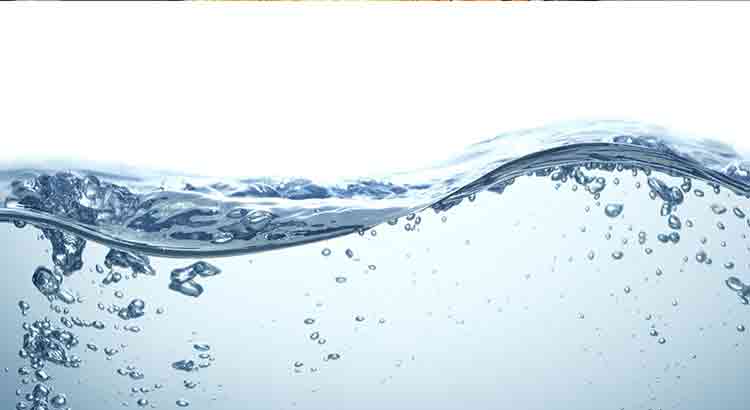Welcome to the ultimate beginner’s guide to finding the best water for your pizza dough! If you’ve ever wondered how to achieve that perfect balance of crispiness and chewiness in your homemade pizzas, look no further. In this guide, we’ll explore the role of water in pizza dough and why it’s important to choose the right water for optimal results. Get ready to elevate your pizza-making game and impress your taste buds with the perfect crust!
Whether you’re a pizza aficionado or just starting your culinary journey, understanding the impact of water on your dough is a game-changer. From tap water to filtered water, specialty waters, and even considering mineral content, we’ll cover it all. So, grab your apron and let’s dive into the world of water and pizza dough. Get ready to create mouthwatering, restaurant-quality pizzas right in your own kitchen!
The Role of Water in Pizza Dough
Water plays a crucial role in the making of pizza dough. It is not just a simple ingredient; it affects the texture, flavor, and overall quality of the dough. When combined with flour and yeast, water hydrates the dough and activates the yeast, leading to fermentation and the creation of carbon dioxide gas bubbles that make the dough rise.
The amount of water used in pizza dough is significant. It determines the dough’s hydration level, which affects its elasticity and texture. More water results in a softer and more elastic dough, while less water leads to a denser and chewier crust. Understanding the role of water in pizza dough is essential for achieving the desired texture and flavor in your homemade pizzas.
Choosing the Right Water for Pizza Dough
Choosing the right water for pizza dough might not seem like a critical decision, but it can make a substantial difference in the final outcome of your pizza. Water quality varies based on its source and mineral content, which can impact the taste, texture, and rise of the dough.
Tap water is commonly used for pizza dough, but it’s crucial to consider its quality. Chlorine and other chemicals found in tap water can affect the fermentation process, potentially resulting in an off-flavor in the dough. Filtering tap water or using bottled water can be a good option to eliminate any unwanted chemicals and ensure a clean taste.
Remember that the flavor of your dough can also be influenced by the mineral content in the water. Some prefer using mineral-rich water, like spring water, to enhance the flavor of their pizza crust. Experimenting with different types of water can help you discover your preferred taste profile and achieve the best results in your homemade pizzas.
Factors to Consider When Selecting Water for Pizza Dough
When selecting water for your pizza dough, consider the following factors:
- Purity: Ensure the water is free from impurities and contaminants that could negatively affect the dough’s flavor and texture. Filtered tap water or bottled water are good options.
- Mineral Content: Different types of water have varying mineral contents. Experiment with different mineral profiles to find the flavor that suits your taste preferences.
- Consistency: Use water consistently throughout your pizza-making process. Consistency in hydration is key to achieving reliable and predictable results in your dough.
- Temperature: The temperature of the water can affect the fermentation process. Use water at the desired temperature indicated in your recipe for optimal results.
Tap Water vs. Filtered Water: Which is Better for Pizza Dough?
When it comes to using tap water or filtered water for your pizza dough, filtered water often takes the lead. Tap water may contain chlorine and other chemicals that can interfere with the fermentation process and leave an unpleasant taste in the dough. Filtering tap water helps remove these impurities, ensuring a cleaner and better-tasting dough.
Filtered water also provides a more consistent quality compared to tap water, which can vary depending on the region. Consistency is crucial in pizza dough making, as it allows you to replicate successful results every time you bake. Investing in a water filter or using commercially available filtered water can be a worthwhile choice for achieving optimal dough quality.
The Impact of Mineral Content in Water on Pizza Dough Quality
The mineral content in water can have a noticeable impact on the quality of your pizza dough. Some minerals, like calcium and magnesium, can contribute to gluten development, resulting in a stronger and more elastic dough. On the other hand, high mineral content can also make the dough tougher and less tender. It’s a delicate balance.
Mineral-rich water, such as spring water, can add depth and complexity to the flavor of your dough. It imparts subtle mineral notes that can enhance the overall taste of your pizza crust. However, it’s important to note that excessive minerals in water can overpower the flavor and create an undesirable aftertaste. Finding the right balance and experimenting with different mineral profiles will help you achieve the perfect harmony between flavor and texture in your pizza dough.
Exploring Different Types of Water for Perfect Pizza Dough
Beyond tap water and filtered water, there are various types of water you can explore to create the perfect pizza dough. Spring water, for example, is known for its refreshing and crisp taste, making it a popular choice among pizza enthusiasts. Its naturally occurring minerals can contribute to a distinct flavor profile.
If you prefer a lighter and more delicate dough, you might consider using purified water. Purified water goes through a filtration process that removes impurities and minerals, resulting in a clean and neutral-tasting water. This type of water allows the other ingredients in your dough to shine and take center stage.
Ultimately, the best water for your pizza dough depends on your personal preferences. Experiment with different types of water and observe how they affect the texture, flavor, and rise of your dough. With some trial and error, you’ll discover the water that brings out the best in your homemade pizzas, turning them into mouthwatering delights.
Bottled Water vs. Tap Water: Which Is Ideal for Pizza Dough Preparation?
When it comes to choosing between bottled water and tap water for pizza dough preparation, both options have their pros and cons. Bottled water provides a reliable and consistent quality, ensuring that you have control over the water’s composition. It eliminates the uncertainty of tap water variations, making it a preferred choice for many bakers.
However, tap water can still be a viable option if it meets certain criteria. If your tap water has a clean taste and is free from any off-flavors, using it for pizza dough can be convenient and cost-effective. Filtering tap water can help remove any unwanted chemicals and impurities, improving its quality. Ultimately, the choice between bottled water and tap water depends on your specific circumstances and preferences.
Enhancing Pizza Dough Flavor with Specialty Waters
For those seeking to elevate the flavor of their pizza dough, specialty waters can be a fascinating option. Mineral-rich waters, such as those sourced from specific regions or natural springs, can add unique and distinct flavors to your dough. These waters often contain trace minerals that subtly enhance the taste profile, giving your pizza crust a delightful twist.
Exploring specialty waters from different sources can be an exciting culinary adventure. Some may prefer the earthy undertones of water sourced from mountain springs, while others may enjoy the crispness of water sourced from glacial streams. Experimenting with these specialty waters can provide a new dimension of flavor to your homemade pizzas and make them even more memorable.
Does pH Matter?
The pH level of water can have an impact on pizza dough preparation, although it is not usually a major concern for beginners. The ideal pH range for pizza dough is slightly acidic, around 5.5 to 6.5. This acidity helps activate the yeast and promote fermentation. However, most tap water and bottled water fall within this pH range, making them suitable for dough preparation.
While pH can affect dough quality, it’s important to note that other factors such as hydration, yeast, and fermentation process play more significant roles in the final outcome of the dough. Unless you’re an advanced baker or working with highly specialized recipes, the pH level of your water is unlikely to significantly alter the result of your pizza dough. Focus on using clean and reliable water, and you’ll be well on your way to creating delicious pizzas.
In summary, both tap water and bottled water can be suitable for pizza dough preparation, with filtered water offering more consistency. Specialty waters can add unique flavors to your dough, enhancing its taste profile. While pH levels matter to a certain extent, they are generally within an acceptable range for dough preparation. Ultimately, the choice of water for your pizza dough depends on your personal preferences and the availability of different water option
Final Thoughts
Choosing the right water for your pizza dough may seem like a small detail, but it can make a big difference in the taste and texture of your homemade pizzas. While tap water can be convenient, filtering it or using bottled water is recommended to remove any unwanted chemicals and ensure a cleaner taste. Consistency in water quality is key for achieving reliable results in your dough.
Exploring different types of water, such as mineral-rich spring water or purified water, allows you to experiment with flavors and find the profile that suits your taste preferences. Specialty waters can add unique and subtle notes to your dough, taking your pizzas to the next level of deliciousness. Remember to consider the mineral content and balance it to achieve the desired texture and flavor in your crust.
In the end, the best water for your pizza dough depends on your personal preferences and circumstances. Whether you choose bottled water, filtered tap water, or specialty waters, what matters most is the love and care you put into making your dough. So go ahead, have fun, and enjoy the process of creating your own perfect pizza crust that will impress and satisfy your family and friends. Happy pizza-making!

